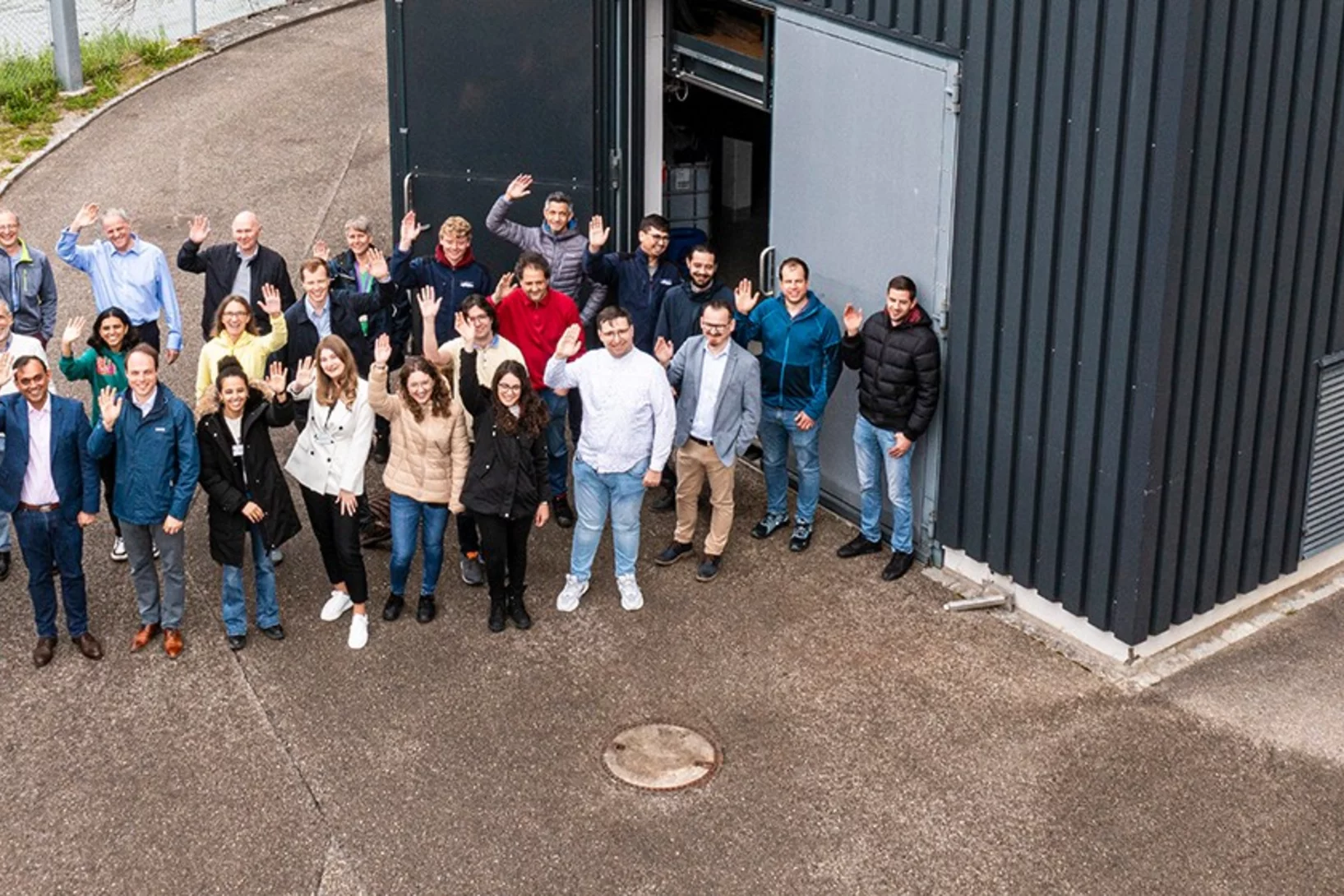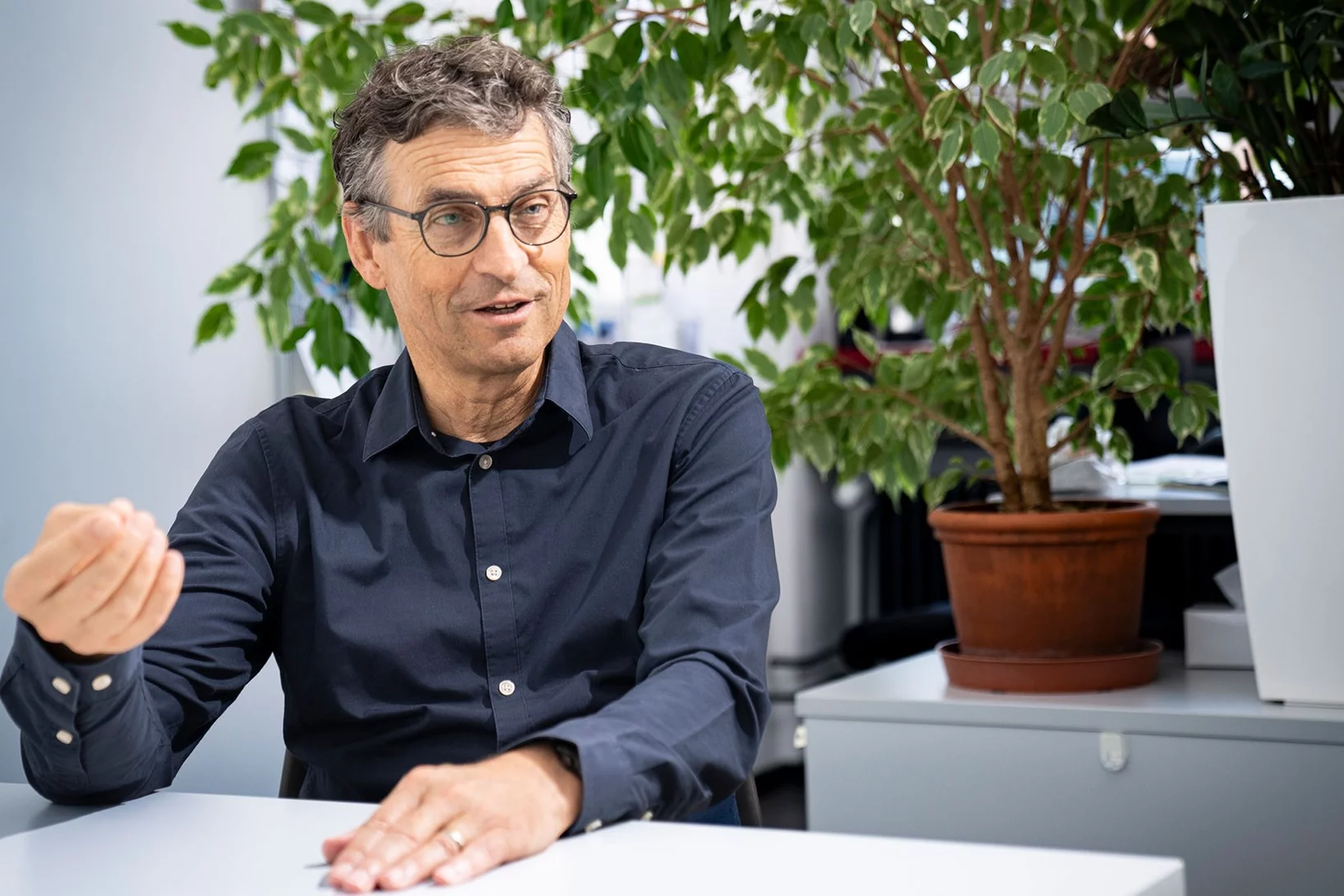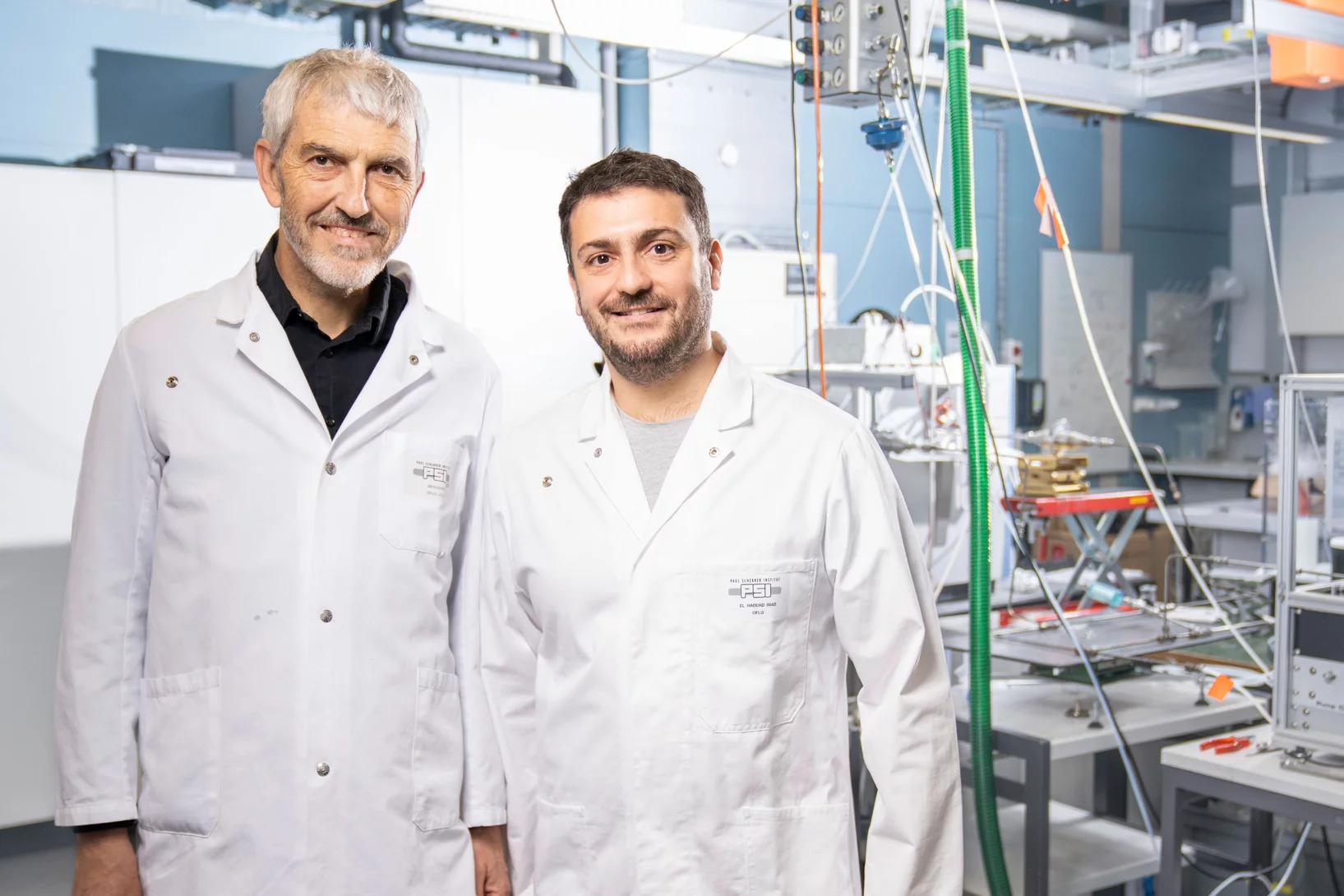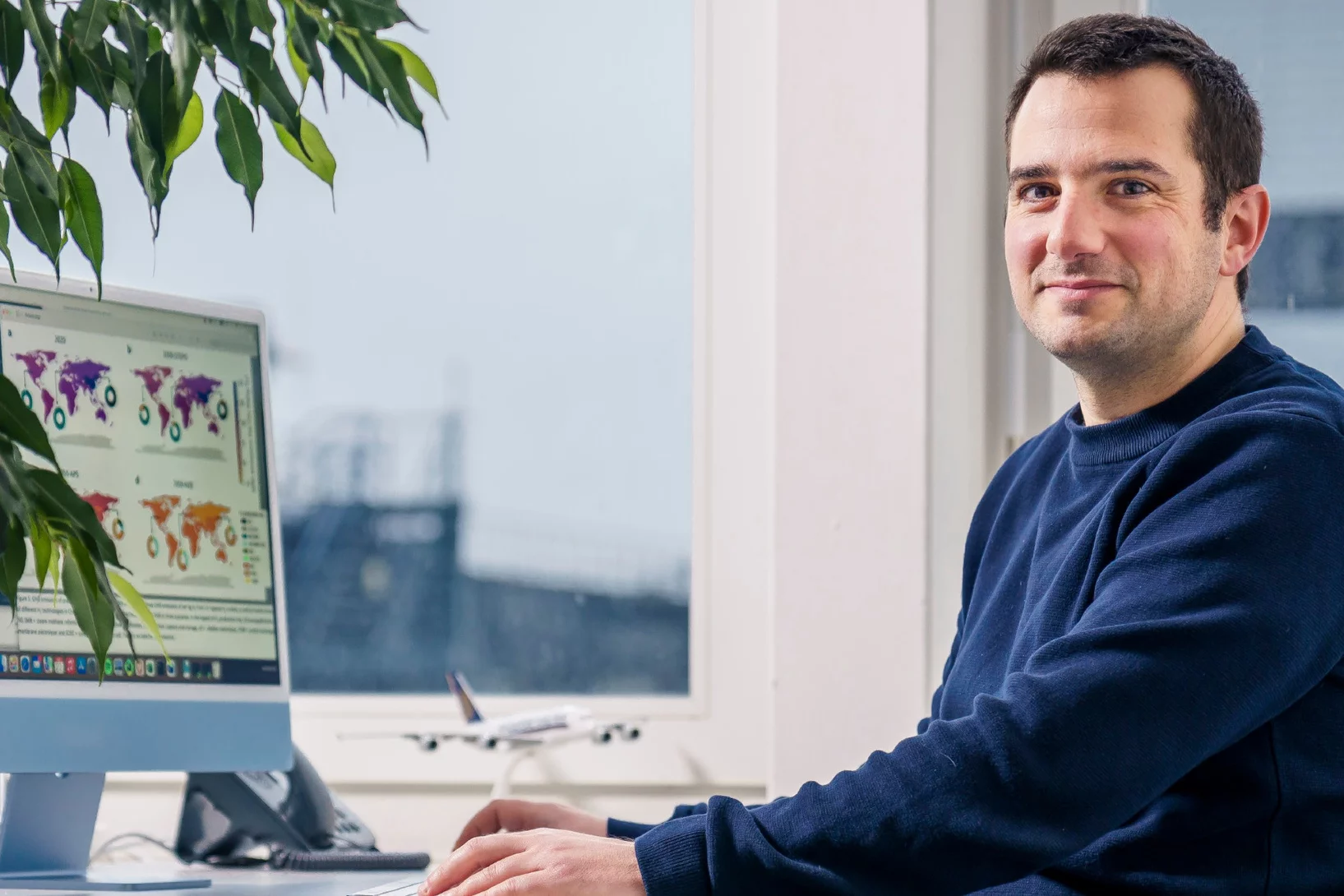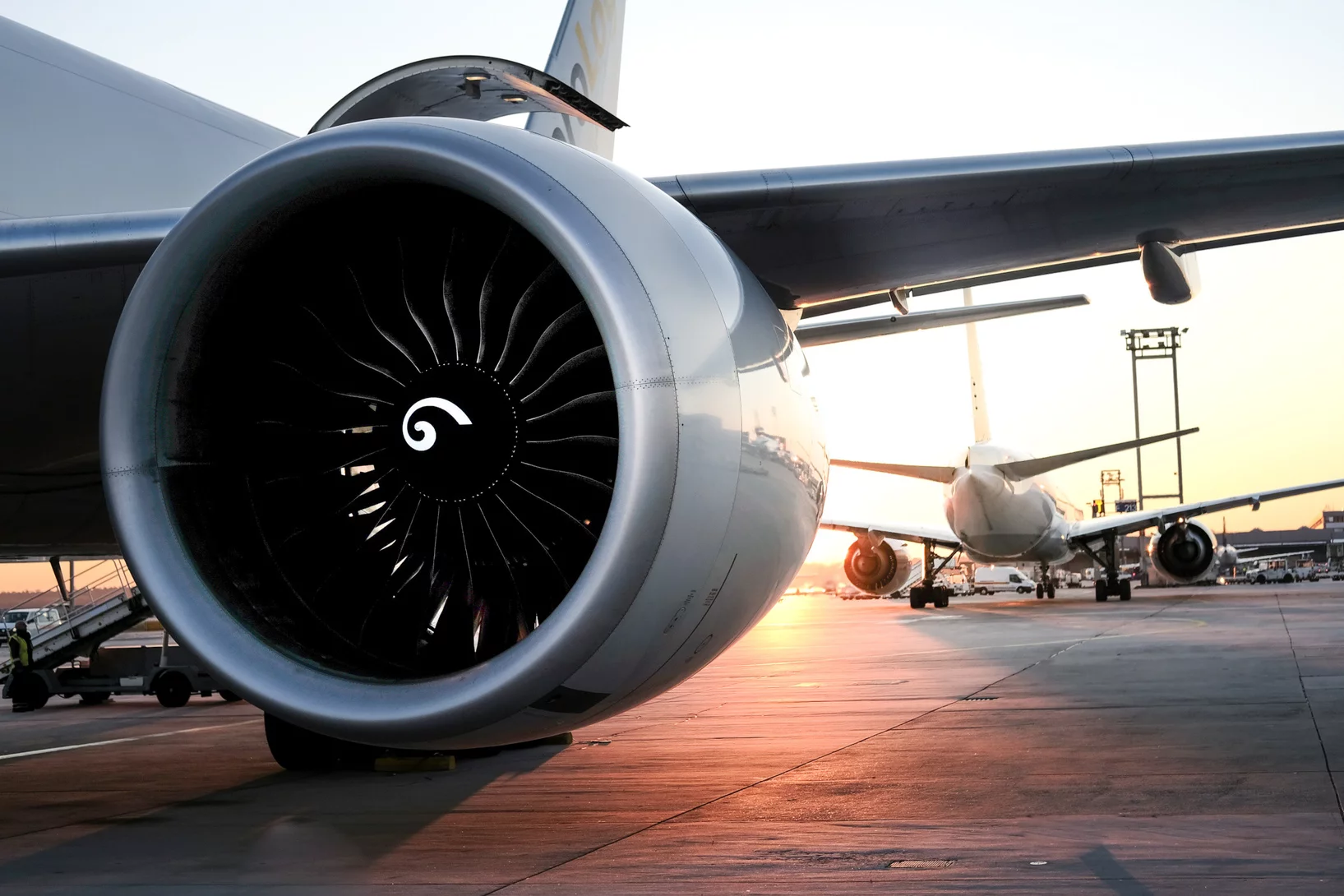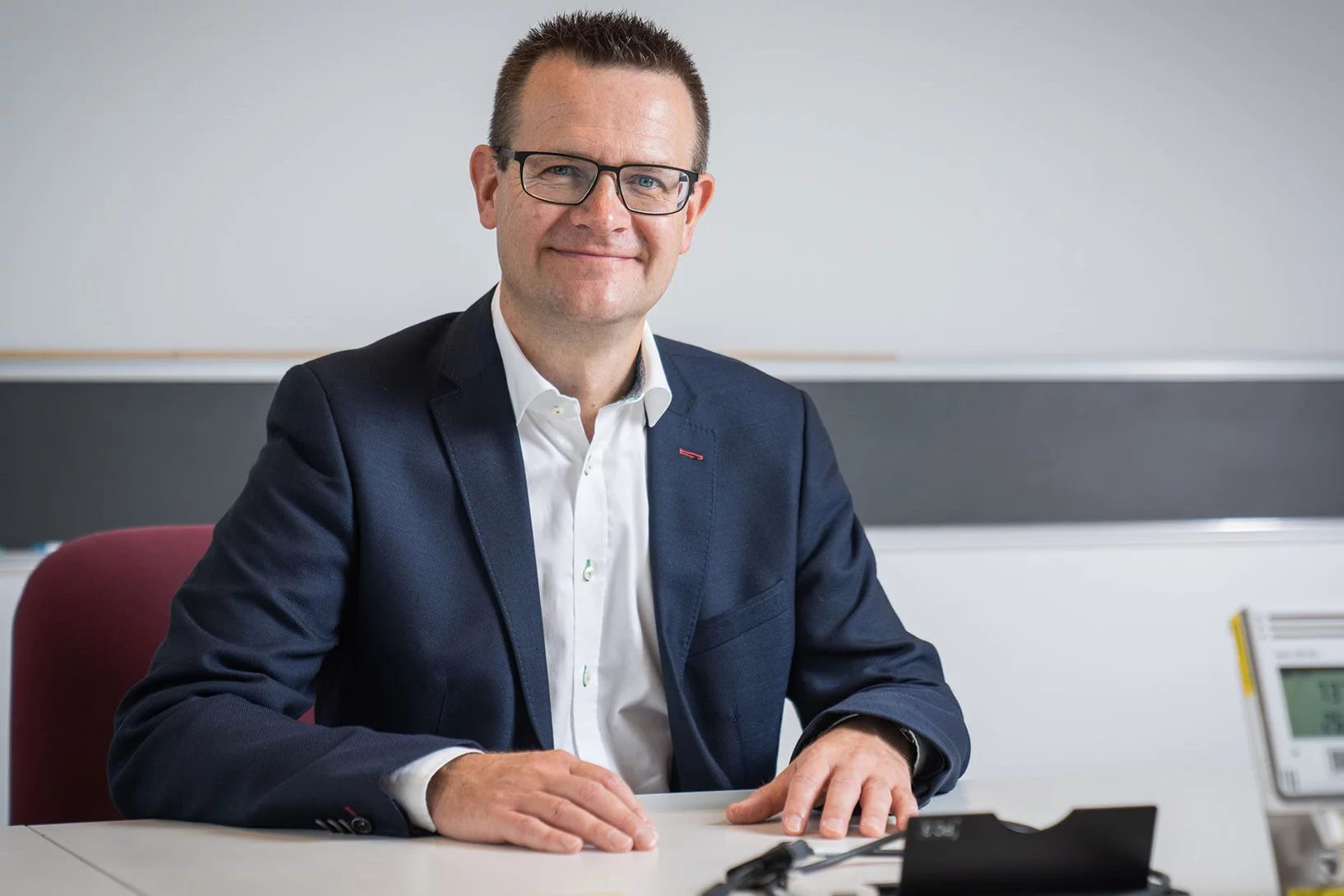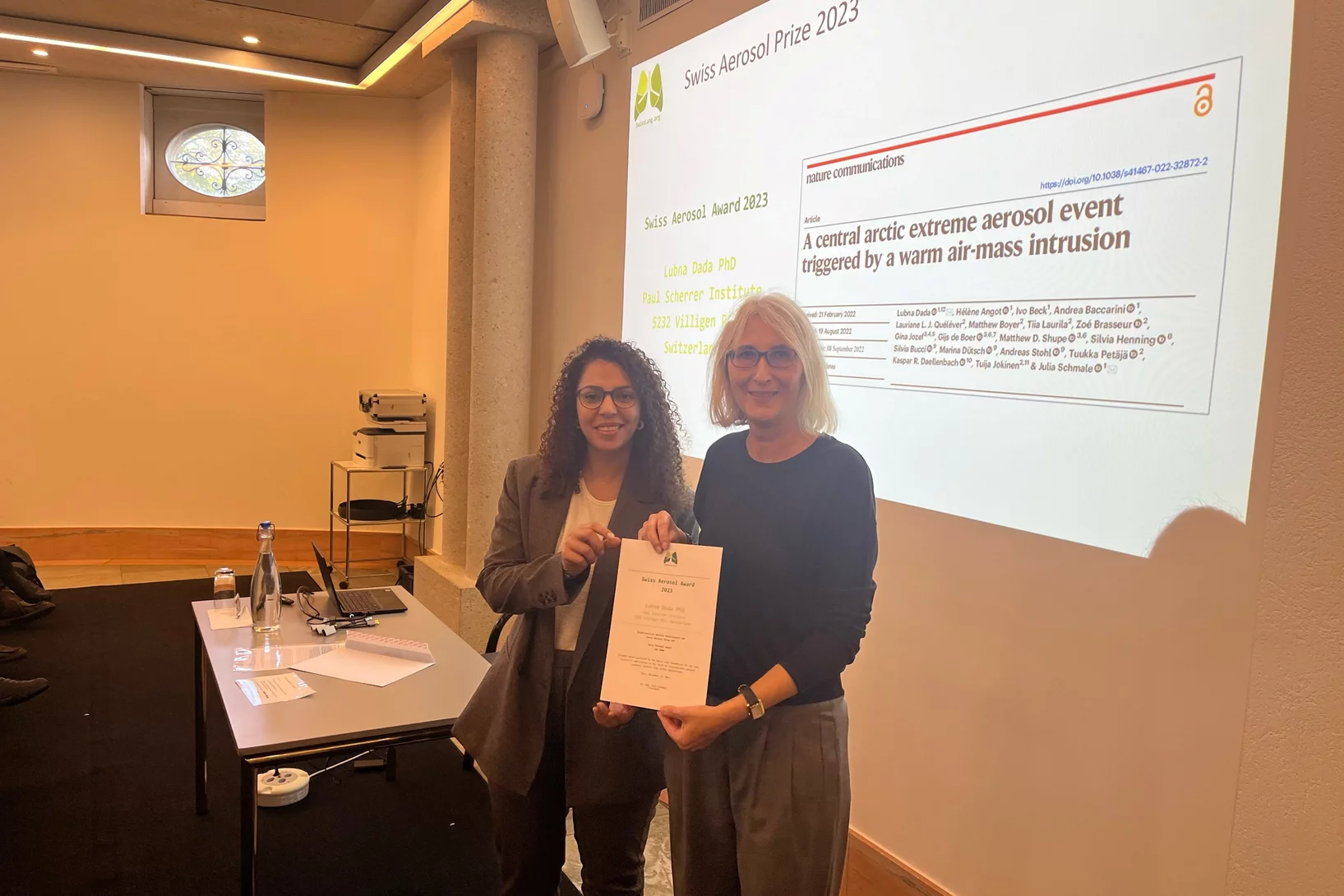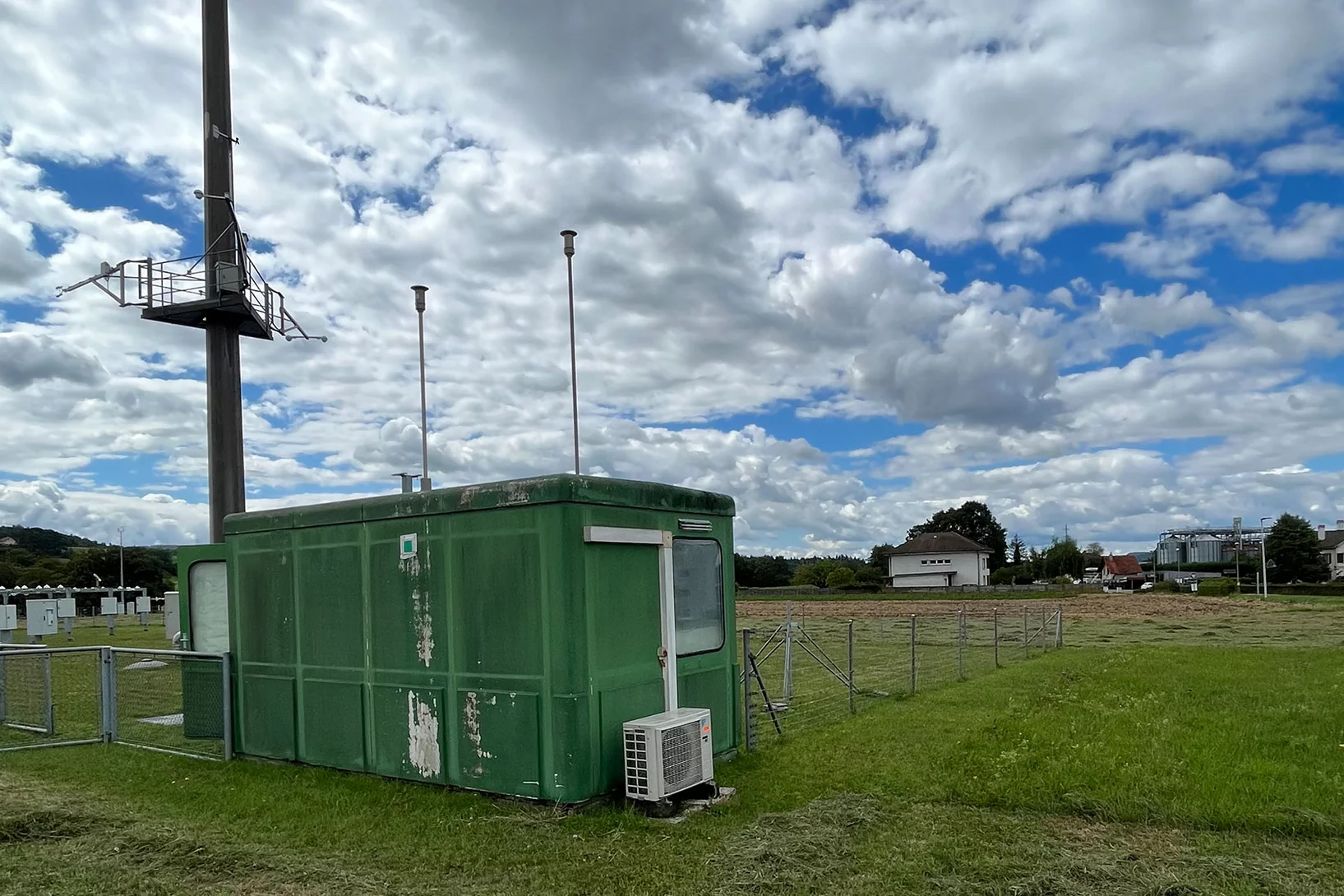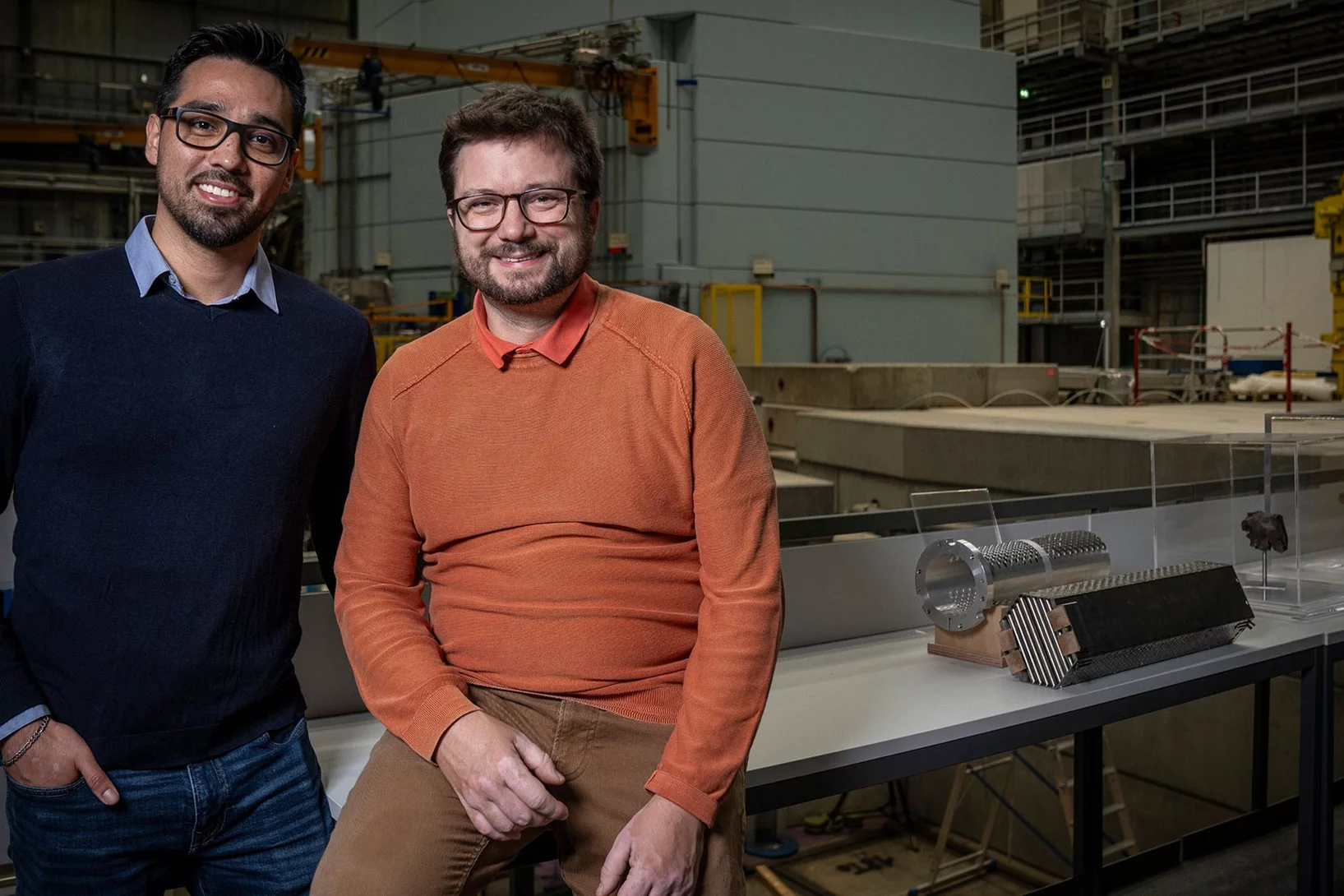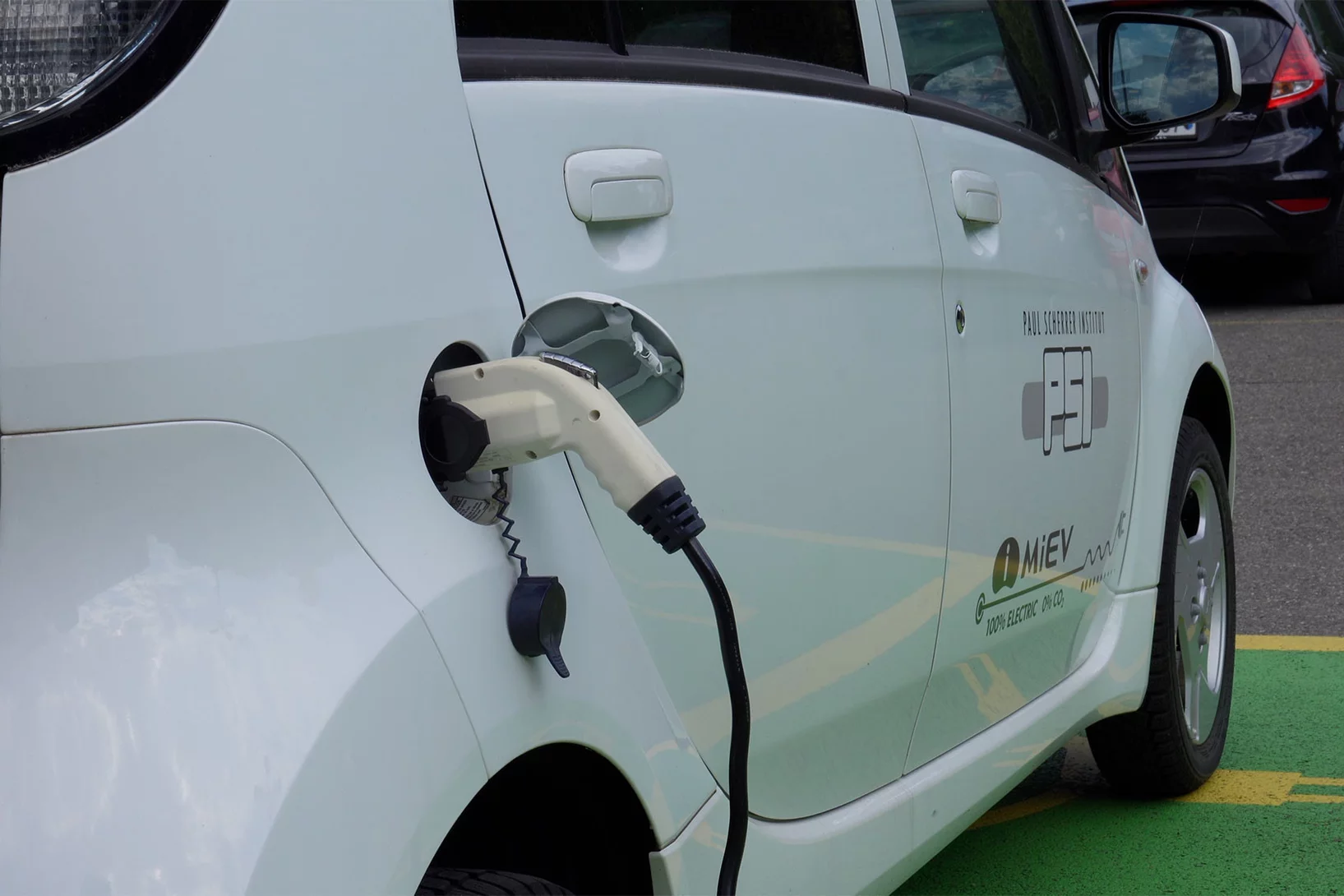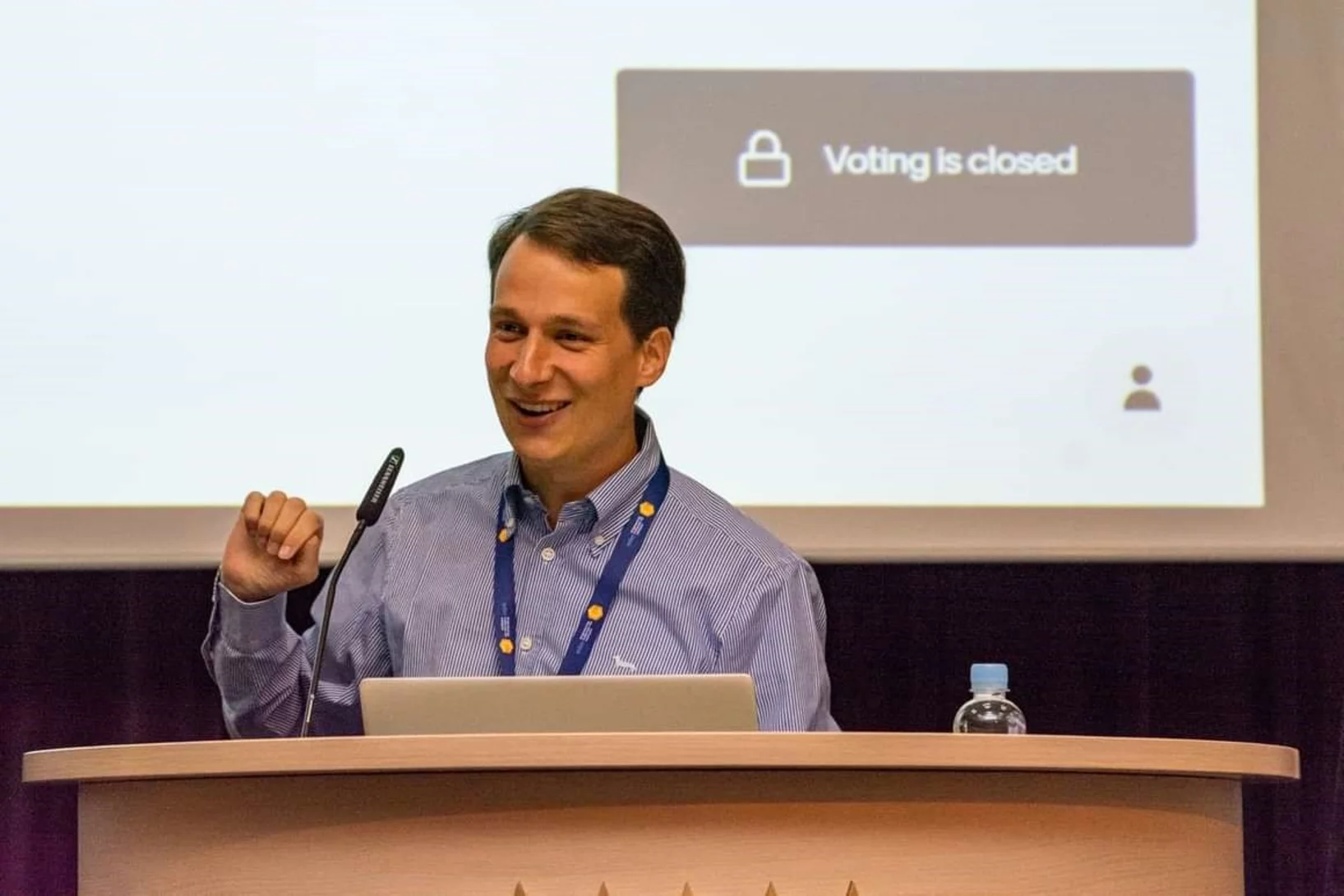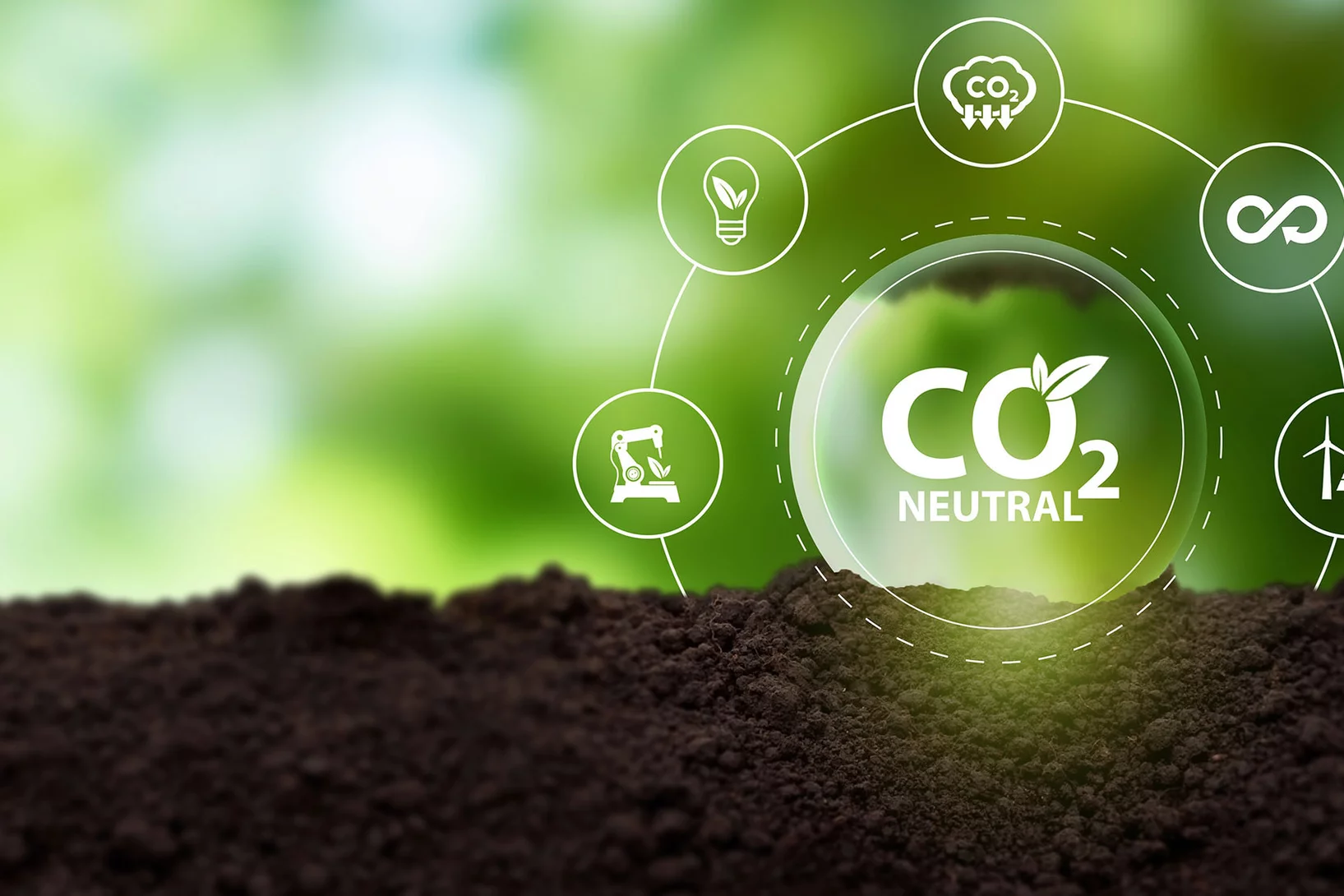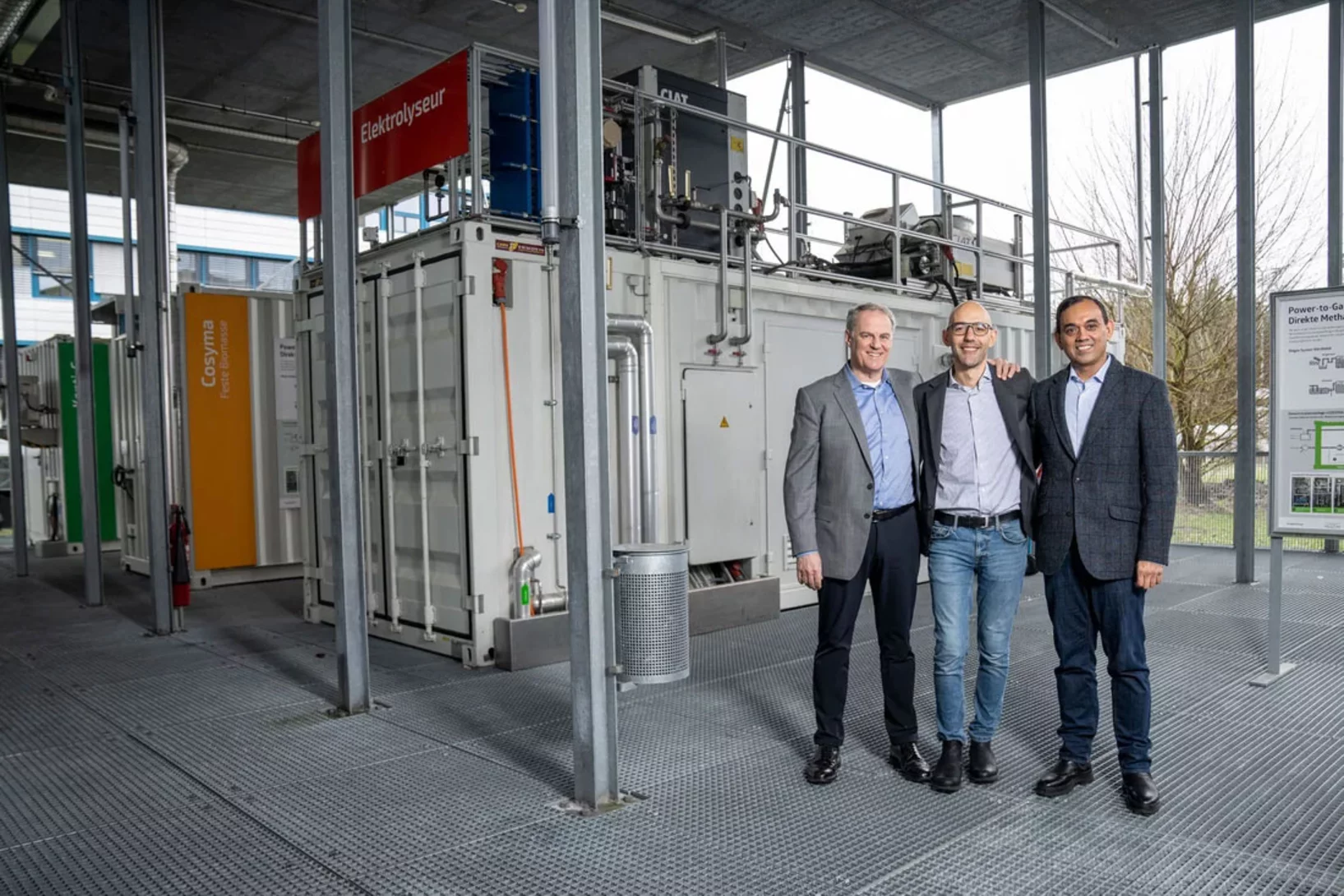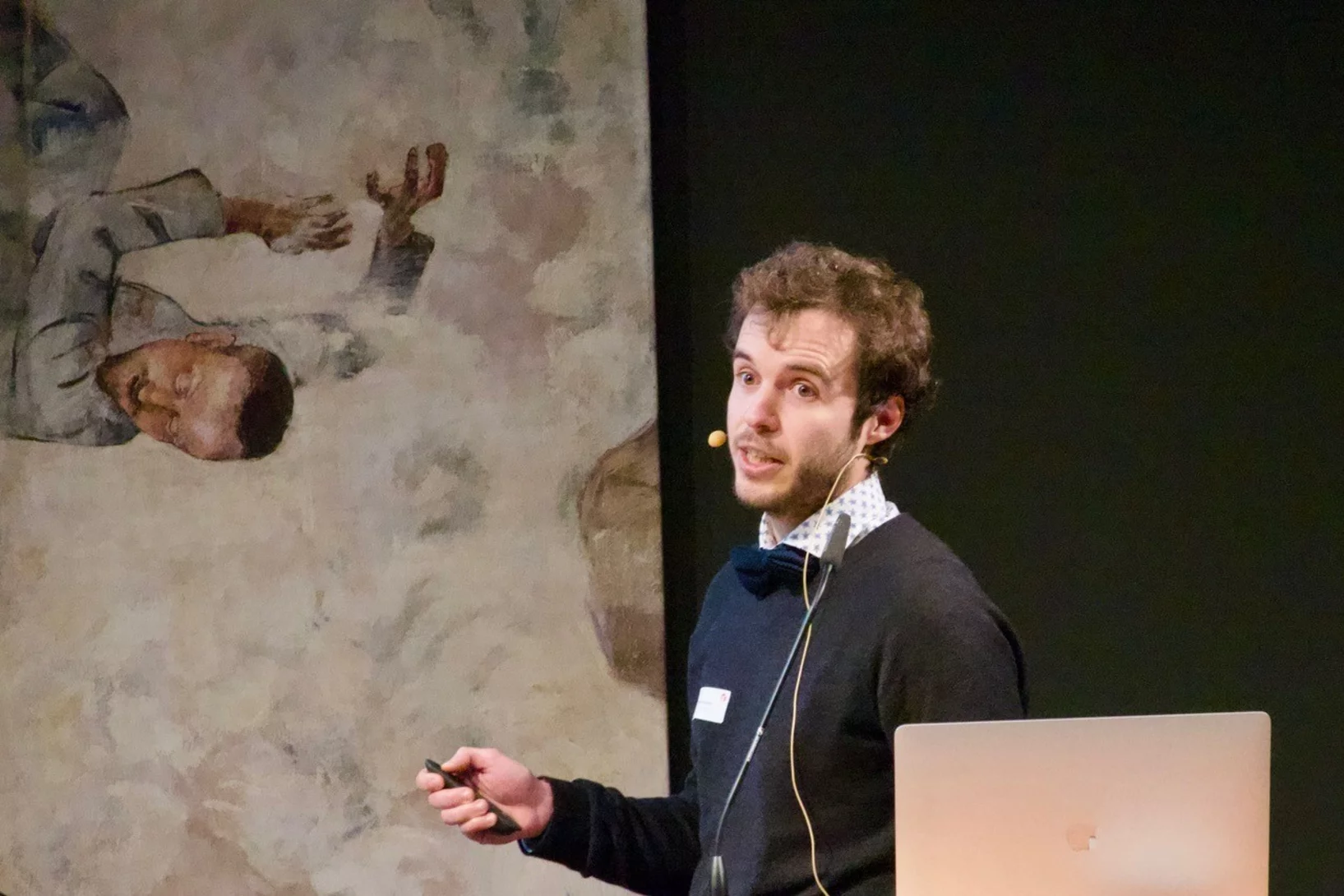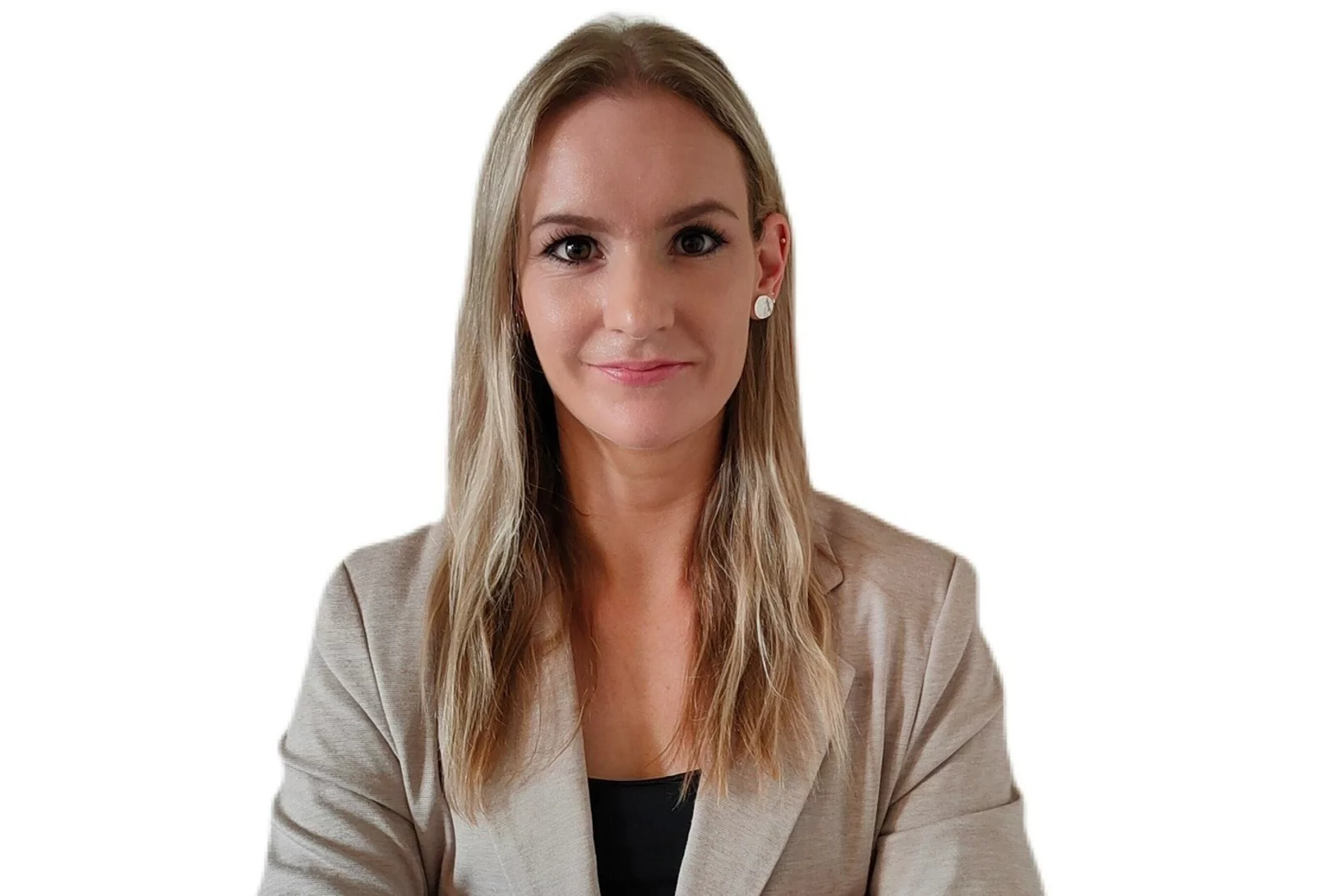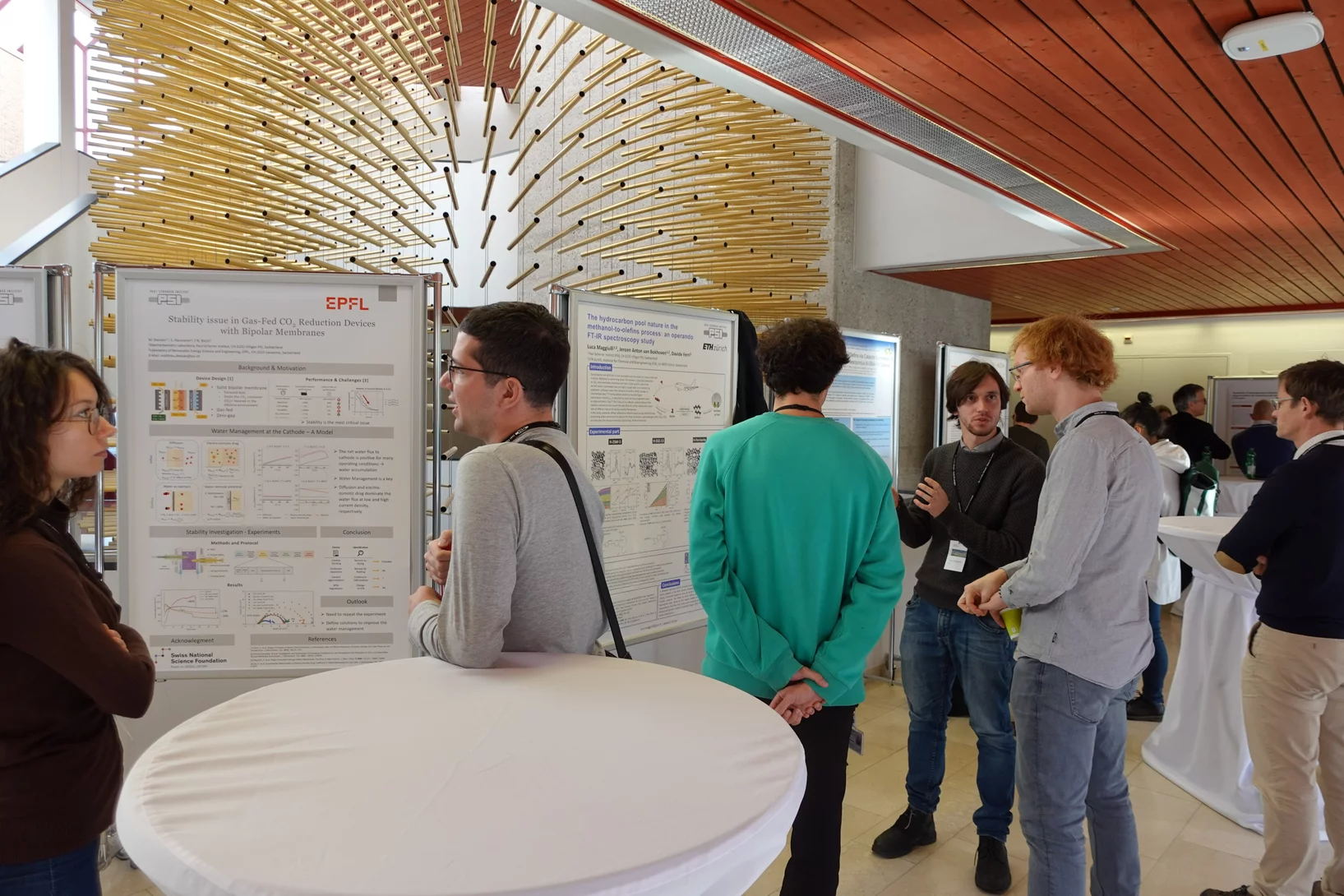Neutralité carbone: inclure les matières premières
Un nouveau modèle de calcul du PSI visualise les interactions complexes entre technologie, besoins en matières premières critiques et impacts environnementaux nécessaires à la transition du système énergétique vers «zéro émission nette» de gaz à effet de serre.
Les polluants ne se forment souvent que dans l'air
Dans le cadre de l’expérience CLOUD au CERN, des scientifiques du PSI ont mesuré avec une précision jamais atteinte à ce jour comment les polluants atmosphériques organiques se forment et se répartissent.
Une nouvelle couche protectrice rend les batteries plus performantes
Augmenter la densité énergétique des batteries lithium-ion: c’est possible grâce à une méthode de revêtement de la surface de la cathode. Ce procédé durable a été développé au PSI.
Vers un trafic routier faiblement émetteur de dioxyde de carbone
Des scientifiques de l’Institut Paul Scherrer PSI montrent comment une intégration habile des énergies renouvelables permettrait de décarboniser le trafic routier.
Décoller avec du kérosène durable
Dans le monde entier, les scientifiques travaillent à trouver et à optimiser de nouveaux moyens de produire du carburant sans impact sur le climat. Au PSI, ils poursuivent une approche prometteuse en commun avec l’industrie.
S’attaquer à la racine d’un problème de santé global
Imad El Haddad analyse la composition chimique et l’impact sur la santé des particules fines au Center for Energy and Environmental Sciences de l’Institut Paul Scherrer PSI.
iLab et SynFuels aux Energy Days ! au Musée Suisse des Transports
18, 19 et 20 octobre 2024
Le iLab de l'Institut Paul Scherrer participera aux Energy Days avec des ateliers passionnants. Découvrez comment nous pouvons stocker l'énergie renouvelable grâce à des technologies innovantes comme le Power-to-Gas et faire avancer la transition énergétique.
Comment les catalyseurs éliminent des oxydes d’azote dangereux
En catalyse industrielle, le fer n'est pas égal au fer.
Les sources du smog à Beijing ont été identifiées
Des scientifiques du PSI ont identifié les sources du smog à Beijing. Certaines d’entre elles sont très éloignées de la capitale chinoise.
Du carburant d’aviation durable produit sur le campus du PSI
En collaboration avec la start-up climatique Metafuels, une installation pilote de production de carburant d’aviation durable verra le jour sur le campus du PSI.
Können Aerosole die Erderwärmung stoppen?
Partikel in die Stratosphäre injizieren und damit die Erde kühlen? PSI-Forscher Markus Ammann äussert sich im Interview kritisch zu umstrittenem solarem Geoengineering.
Comment rendre l’air de New Dehli plus propre?
Des scientifiques du PSI sont sur la piste des aérosols pathogènes en Inde.
Hydrogène: suffisamment propre pour le tournant énergétique?
L’hydrogène peut jouer un rôle déterminant dans la transition vers un système énergétique zéro net. Mais pour ce faire, il doit être produit correctement.
Est-il possible de voler sans impact sur le climat?
Le trafic aérien doit devenir climatiquement neutre. Quelle pourrait être la contribution des carburants durables, comme ceux que l’on développe au PSI?
La fonte d’un glacier détruit une importante archive de données climatiques
Des scientifiques du PSI ont analysé deux carottes de glace prélevées sur le glacier de Corbassière au Grand Combin.
Deciphering the Skies: Lubna Dada receives Ambizione grant funding for "BioPSI" Atmospheric Research Project
Lubna Dada, Scientist at the Laboratory of Atmospheric Chemistry (LAC) at the Paul Scherrer Institute (PSI) was granted the Ambizione Grant 2023 with her project “Biological Particle Sources and Impact (BioPSI)”. Lubna’s journey of her visionary research project “BioPSI” is set to commence in January 2024, with the anticipation of welcoming a PhD student into the project.
Quel est l’importance de l’hydrogène pour la transition énergétique?
Thomas J. Schmidt, expert en énergie au PSI, fait le point.
Lubna Dada wins Swiss Aerosol Award 2023!
Dr. Lubna Dada, scientist at the Laboratory of Atmospheric Chemistry, at Paul Scherrer Institute received the Swiss Aerosol Award 2023 from the Swiss Lung Foundation in Bern for her excellent work on warm airmass intrusions from mid-latitudes into the Arctic.
New Study Reveals Surprising Climate Benefits of Agriculture
The big challenges our planet faces—like climate change, food supply, water, and biodiversity—are all interlinked. While agriculture continues to be the primary source of food for human kind, it imposes climate challenges especially through emissions like greenhouse gases and ammonia. To solve this, we need a new approach that reduces the harmful effects of farming on the climate.
Améliorer les batteries des voitures électriques
Des scientifiques du PSI utilisent des neutrons pour visualiser les modifications physiques et chimiques qui se produisent dans l’électrolyte des batteries.
L’influence des arbres sur la formation des nuages
Des chercheurs du PSI ont déterminé plus précisément un facteur de la formation des nuages, resté ignoré jusque-là. Leurs travaux pourraient permettre d’améliorer les prévisions climatiques.
Comment réduire la quantité de cobalt dans les batteries des voitures électriques?
L'électrification des transports est en augmentation. Cela signifie que davantage de batteries sont nécessaires. Cependant, certaines d'entre elles contiennent une matière première extrêmement problématique : le cobalt. Le PSI recherche des alternatives.
Revolutionizing Renewable Processes: Ambizione Grant Winner Emanuele Moioli
Emanuele Moioli is one of the recipients of the prestigious Ambizione Grant awarded by the Swiss National Science Foundation (SNSF) on a yearly basis. With the great news of his award having arrived in August 2022, Moioli embarks on the journey of his groundbreaking project titled “Moving catalyst vs. Multi-catalyst: determination of the best reactor for the processing of unconventional feedstock,” set to commence this August 2023.
L’avion climatiquement neutre: est-ce possible?
Pour atteindre cet objectif, il faudra avant tout disposer de carburants durables et réduire le trafic aérien.
La Suisse en route vers le zéro net
Les institutions du Domaine des EPF mettent en commun leur expertise pour atteindre l’objectif zéro net.
La cause de l’extrême pollution atmosphérique nocturne à New Dehli a été élucidée
Des chercheurs du PSI ont découvert ce qui cause la forte pollution atmosphérique nocturne à New Dehli.
Faire voler des avions de manière durable
Voler sans empreinte CO2 – le PSI et l'entreprise Metafuels AG développent une nouvelle technologie pour la production de carburant aviation durable.
Andrea Baccarini – Winner of the Prix de Quervain
Andrea Baccarini, former PhD at the Laboratory of Atmospheric Chemistry at PSI won the prestigious Prix de Quervain.
"The skills I had acquired during my PhD were 1 to 1 transferrable in my role as a Development Scientist"
Susan Taylor completed her PhD at the Laboratory for Electrochemistry at the Paul Scherrer Institute in 2017. Today she works as a Senior Analyst at S&P Global and reflects with us on her PhD years at PSI.
SynFuel Initiative Meeting
On November 7th, the SynFuel Initiative project meeting between PSI and Empa scientists took place. This was the first time the scientists involved in the collaboration met in person as this was not possible before due to the pandemic. The scientists presented their work on the sub-projects of the SynFuel Initiative to each other and had an exchange. The day ended with a tour of the SLS and GanyMeth.











